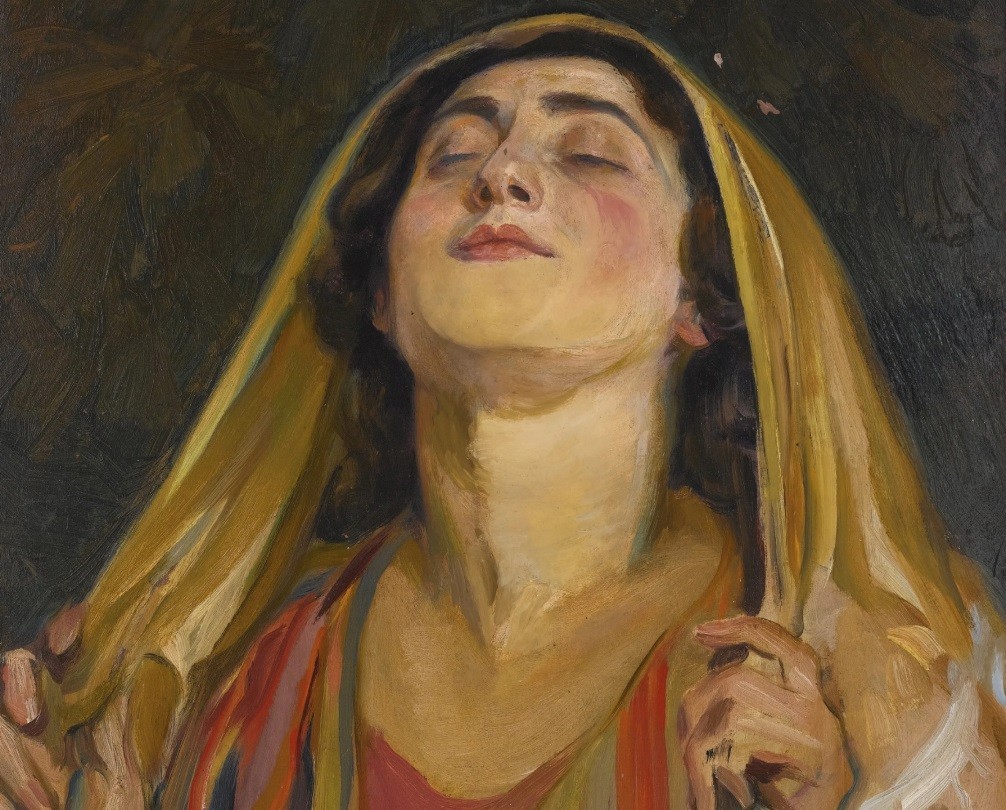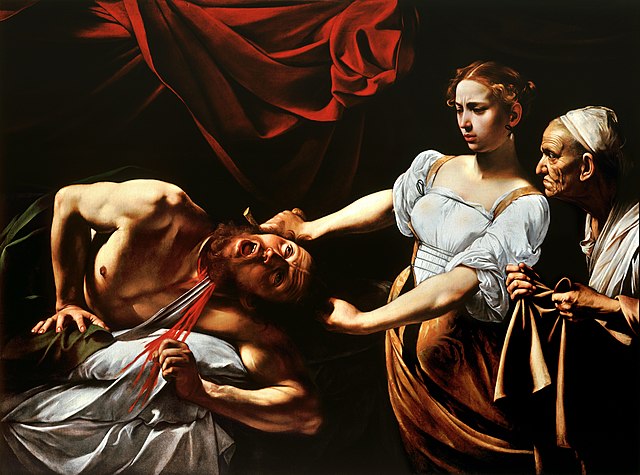Summary of the Torah portion Miketz – we read about the rise of Yosef and the economic re-structuring of Egypt, transforming the Egyptian people in serfs to Pharaoh. The portion ends in the middle of the confrontation between Yosef and his brothers, when the brothers come for the second time, bringing Benjamin with them.
Today is Chanukah, the sixth day, and it is also Rosh Chodesh. Those are the famous holidays. You might not know but the Jewish communities in Tunisia, along with the communities of Libya, Algeria, Kushta, Morocco and Thessaloniki, celebrated in the Middle Ages another holiday today, called chag haBanot in Hebrew, or Eid El Bana’at in Judeo-Arabic. In English we would call it Holiday of the Women or Women’s Day.
The celebrations varied according to each community, but the theme is the same: connections.
Women would celebrate their connections with each other and their connection with Judaism, God and the Torah. In Israel nowadays, where an effort is happening to rediscover and strengthen that holiday among other holidyas brought by the Diaspora to Israel, researchers of the group HaLuz HaYivri asked questions to those who celebrated the Hag HaBanot in their communities – click here for more. We hear of women going to the synagogue to kiss or touch the Torah, and saying various blessings. Women would get together and cook a meal which they would then celebrate with singing and dancing without the presence of men; mothers would give their daughters gifts and bridegrooms would give gifts to their brides; women or girls who had fallen out with each other would reconcile their differences and pledge friendship to each other. All of these were among the traditions celebrated in the North African communities.
Now, one of the questions that you might have is why precisely today, which is the day that connects Chanukah and a Rosh Chodesh, should be the day for that particular celebration. The fact is that the Maccabees are just one of the stories of Chanukah. There are three other stories that populate Chanukah, each with a woman in the center, each reflecting a different aspect of Jewish tradition and women’s lives.
For centuries, the best known was the narrative of Hannah and her seven sons, which, like the Maccabee saga, appears in the Apocrypha (works not included in the canon of the Hebrew Bible). Hers is a familiar story in Jewish history, one of suffering and martyrdom, and she plays the familiar woman’s role of a strong and pious mother. In this case her strength and piety are put to the ultimate test as the cruel Antiochus, Seleucid king of Syria, tries to force each of her sons to eat pork. As each refuses, he is tortured and murdered while his mother looks on. The king urges Hannah to persuade her remaining youngest son to save his life by eating the pork. Instead, she encourages him to follow his brothers’ example and martyr himself. Torn by grief, with her sons gone, she dies also. Hannah’s commitment to Jewish law under the direst circumstances encouraged generations of Jews in many lands as they faced pogroms and persecutions. Her story is in the seventh chapter of the Book of Maccabees, and you can read it by clicking here.
A very different Hannah takes center stage in a second Chanukah story, generally told in books of legends such as Otzar Midrashim. This is a young Hannah, sister of the Maccabees, and about to be married. Determined to prevent the local Syrian ruler from exercising his “droit de seigneur,” the right to have sexual relations with a new bride, she strips naked before the guests at her wedding feast. When her brothers threaten to kill her because of her shameful behavior, she demands that they save the honor of all Jewish women by fighting the Syrians. As the tale goes, her action sparks their rebellion.
Then there is the story of Judith. In this narrative, Holofernes, an Assyrian general, sets out to conquer Judea, but is stopped by the people of Bethulia (possibly Jerusalem). He besieges the city, and, worn down by hunger and thirst, the elders decide to surrender. Enter Judith. The beautiful widow berates the leaders for their lack of faith and devises her own plan. Taking her maid and a sack of food to eat (she observes Jewish dietary laws), she talks her way into Holofernes’ camp. There she convinces the general that she deserted her people, and by praying to God she can bring him victory. For three days, she leaves in the nighttime to pray, and returns in the morning, thus accustoming the guards to her coming and going. On the fourth day, Holofernes gives a banquet in her honor. Overcome by lust and planning to seduce her, he dismisses his servants, then drinks himself into a stupor. Judith grabs his sword and with all her might hacks off his head. She and her maid leave, this time with Holofernes’ head in their sack. After discovering his headless body, the Assyrian army flees in  disarray, and the Jews win a great victory, “by a woman’s hand.”
disarray, and the Jews win a great victory, “by a woman’s hand.”
So it makes sense that this Woman’s Day would be celebrated precisely when these two moments of the calendat appear, Rosh Chodesh – which is celebrated by women – and Chanukah.
In recent years there have been some attempts made to renew and to strengthen Chag HaBanot, as a push to have a traditional framework for the idea of equality between men and women, which is a part of Israeli consciousness but that has been chipped away by the Rabbanut, with the Sephardi Chief Rabbi in 2019 forbidding women to light Chanukah candles at the Kotel, even in the women’s side of it, and some groups opposing women appearing in photos of newspapers or ads. Groups like the Shalom Hartman Institute have been highlighting this tendency in the past few years. But knowing and celebrating these other holidays is also a way of highlighting the diversity and richness of our people and our traditions, reminding us that we are, at the center, one people with many different facets.
As we continue lighting the candles for Chanukah, may we focus on moving towards a richer and more egalitarian Judaism in our lives.
Shabbat Shalom.
